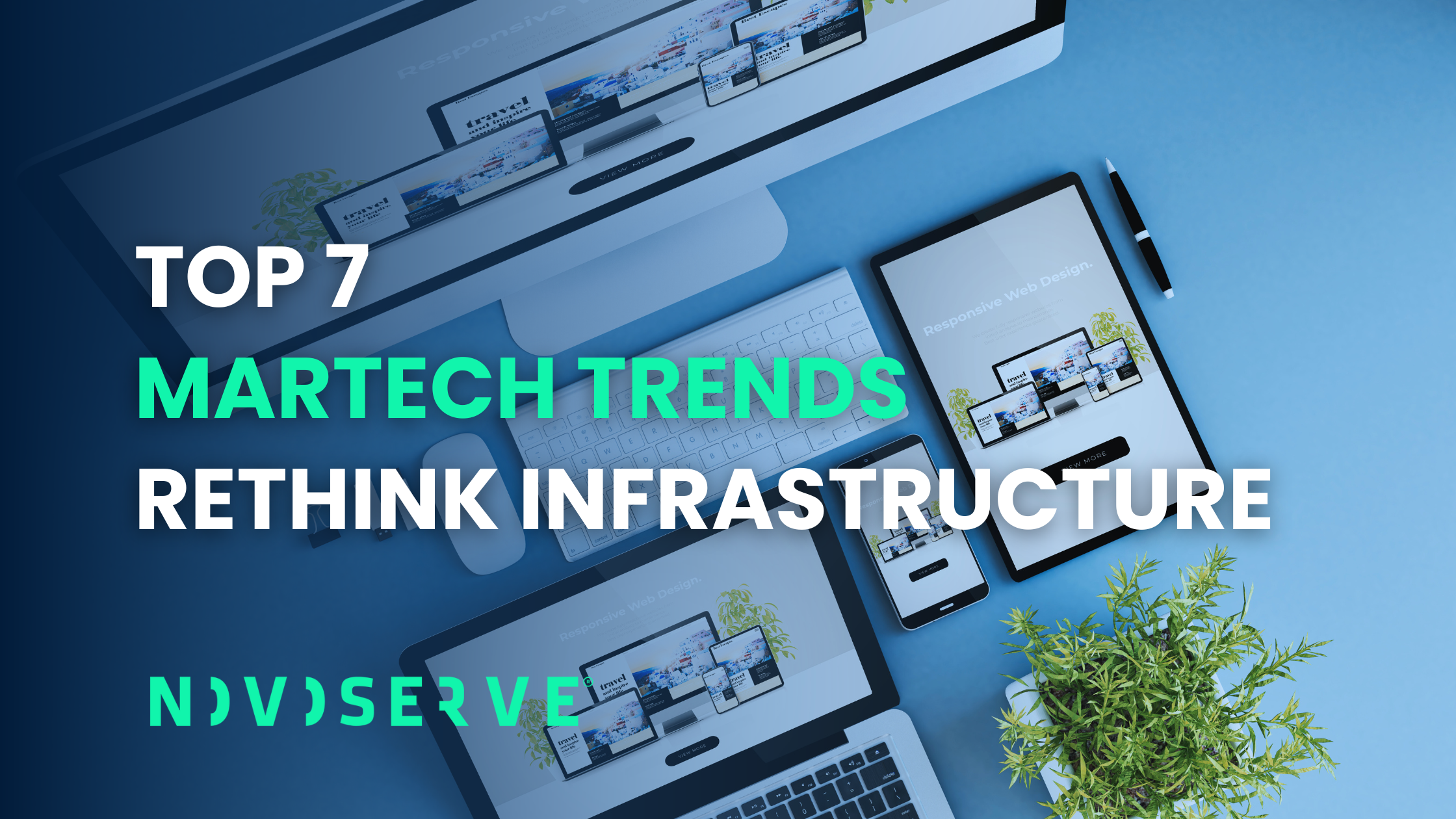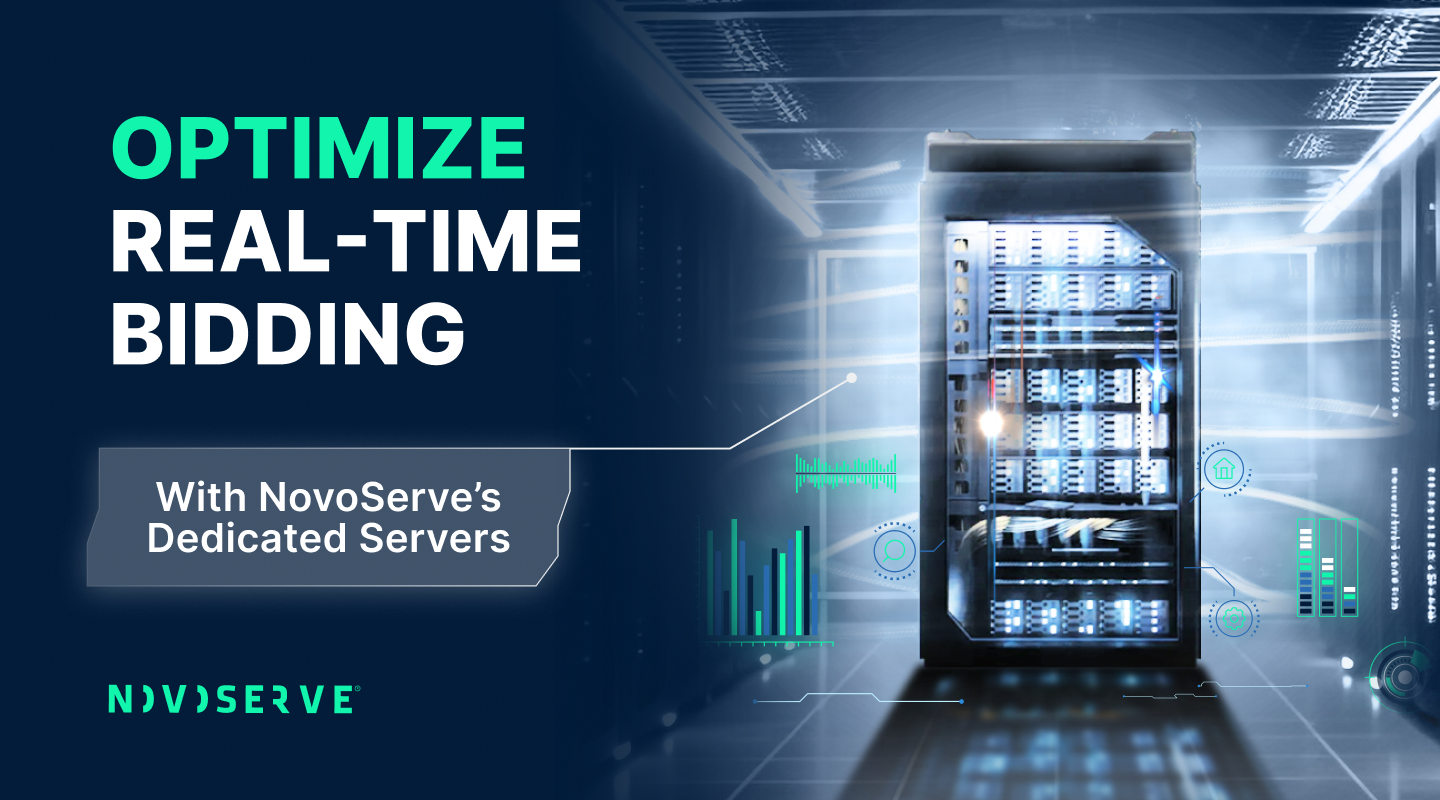The MarTech trends demand more from MarTech infrastructure than ever before. Cloud services may feel familiar, but MarTech hosting on dedicated MarTech servers provides the performance, control, and compliance companies need. In this evolving environment, understanding how each trend- from AI‑driven personalization and cookieless tracking to voice‑first experiences and ethical marketing-impacts infrastructure is key to staying ahead.
AI‑First Ecosystems
Many platforms now embed generative AI (like Salesforce Einstein and Adobe Sensei) at their core, automating content, segmentation, and campaign orchestration. What once required manual A/B testing is now handled in real time. This shift transforms AI from a tool into the engine behind modern marketing.
Impact on infrastructure: To support AI-first operations, infrastructure must provide powerful, low-latency compute—think multi-core CPUs, dedicated GPUs, and super-fast NVMe storage. These workloads often operate at real-time speeds, processing thousands of user events per second. Public cloud VM tiers can’t guarantee the consistent performance needed, with ‘noisy neighbor’ effects and jitter introducing unacceptable delays. Dedicated servers, by contrast, deliver predictable computing environments with reserved resources—essential for ensuring every personalized email, ad, or website experience fires within precise time windows.
Cookieless Tracking
With third-party cookies dying out, MarTech stacks are turning to Customer Data Platforms (CDPs), zero-party forms, and server-side tagging to unify and activate first-party data sets. Brands are strategically collecting direct data while preserving privacy and enhancing trust.
Impact on infrastructure: Managing and processing first-party data requires tightly controlled environments. Servers must support clean-room deployments for privacy-compliant data analysis and comply with regional data residency requirements. Physical separation of datasets across tenants ensures zero cross-contamination. Furthermore, these servers handle high-throughput ingestion from forms, events, and real-time APIs, demanding substantial I/O bandwidth and memory. Dedicated servers offer full configuration control—from firewall placement to encryption at rest—enabling companies to tailor infrastructure precisely to evolving privacy regulations.
Voice-First & Zero-Click Experiences
As voice assistants and zero-click SERPs grow, users expect instant answers without clicks. Brands must now optimize for voice search and conversational UI, integrating chatbots and virtual assistants across digital touchpoints.
Impact on infrastructure: Voice-first systems rely on dialog flows, NLP models, and real-time APIs. Any lag—say, in speech-to-text or response generation—can break the user experience. To deliver sub-200ms response times, infrastructure needs both compute muscle (for NLP inference) and network availability. Dedicated servers, especially when combined with edge deployments, help maintain low latency. They also guarantee high uptime and redundancy, so chatbots stay responsive even during peak traffic.
AR/VR & Immersive Media
Augmented reality and immersive video formats are emerging not just in consumer campaigns, but in B2B demos and product visualisations. These engaging experiences are becoming pivotal in differentiated marketing strategies.
Impact on infrastructure: AR/VR payloads involve heavy streaming and rendering workloads. You need fast web servers, GPU-enabled compute clusters, and high network throughput to support immersive content delivery. When rendering assets on the fly or streaming 4K interactive video, latency drops—even slight ones—can degrade the experience. Dedicated hosting enables high-resource VMs or bare-metal GPU servers with dedicated NICs, ensuring smooth, low-latency pipelines for augmented marketing campaigns.
Omnichannel Automation & Marketing Stacks
Modern marketers stitch together email, web, SMS, social, chat and push via automation workflows powered by platforms like HubSpot, Zapier, and ActiveCampaign. These orchestration layers work only when underlying systems are fast and reliable.
Impact on infrastructure: Omnichannel workflows create bursts of API calls, database triggers, file writes, and third-party uploads. Infrastructure has to absorb these peaks without throttling or queuing requests, or users will experience delays. Servers need scalable CPU and memory reserves, alongside high I/O throughput for logging, queueing, and transaction records. Failure to keep pace affects deliverability and customer engagement. Dedicated servers provide constant resource availability, essential for dependable automation flows.
No-Code/Low-Code Tools
The rise of no-code and low-code platforms democratizes campaign creation—but can overload backend infrastructure. When users build landing pages, automations, or analytics dashboards, they rely on infrastructure they can't see that it’s there.
Impact on infrastructure: No-code adoption often leads to sudden bursts of traffic—like when a webinar signup goes viral—and backend systems need the resilience to handle these loads smoothly. API endpoints and hosting environments must scale quickly. With low-code pipelines, you may not know in advance what performance demands will be triggered, so dedicated servers with elastic scalability (e.g., via private cloud or hybrid setups) are critical for reliability and cost-efficiency.
Ethical & Privacy-Centric MarTech
Brands are increasingly judged by their data practices, ESG standards, and AI transparency. Consumers and regulators expect clear policies and traceability.
Impact on infrastructure: To uphold ethical MarTech, platforms must include audit trails, explainable AI tools, and secure logging within their infrastructure. Dedicated servers allow total control over encryption, tamper-resistant configurations, and immutable storage. They let IT teams design chain-of-custody systems for data lineage and ensure only authorized access—a level of detail not feasible on shared cloud instances without complex add-ons.
Dedicated MarTech Server
Choosing dedicated MarTech servers over standard cloud hosting isn’t just a technical decision—it’s a strategic advantage. These servers deliver consistent, jitter-free performance crucial for AI-driven personalization, predictive customer journeys, and real-time optimization. They provide unmatched control, letting you enforce compliance, drive low-latency voice or AR experiences, and handle data ethically. With transparent cost structures—no hidden egress or API charges—you safeguard budgets and scale predictably.
Plus, dedicated infrastructure supports agility through API-driven provisioning, enabling rapid deployment of new campaigns or workflows. For MarTech businesses that are building reliable, privacy-forward, and high-performance customer experiences, dedicated hosting offers the foundation that innovation demands.






